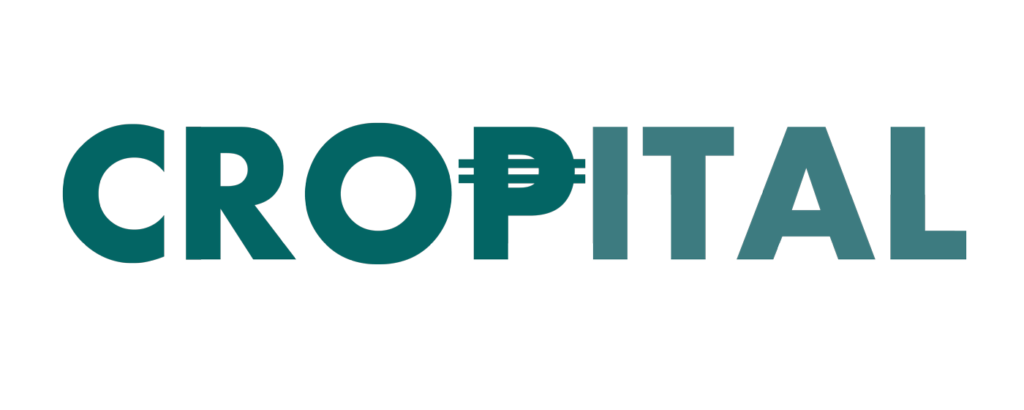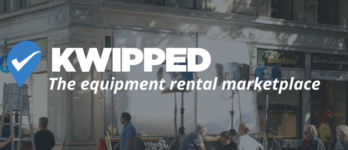
Cropital’s mission is to provide smallholder farmers with access to sustainable financing. Most farmers are dependent on credit for their capital in farming; however, the majority of them still cannot access formal credit. They are often forced to take loans with rates that can go as high as 20% per month.

Co-Founder, Ruel Amparo
Name: Cropital
Location: Manila, Philippines
Website: www.cropital.com
Product / Service Offering: Crowdfunding Platform for Farmers
Co-founder Interviewed: Ruel Amparo
Other Key Management Team Members: Rachel de Villa, Lester Pile
This article is part of our Business Startup Spotlight series featuring entrepreneurs and their companies. We hope that these founders’ interviews will inspire and motivate you as you undertake your own entrepreneurial journey.
Tell us a little about yourself with a focus on what motivates you.
I am Ruel Amparo from the Philippines. I graduated in Industrial Engineering and have always been exposed to agriculture since we own a farm in the province. Although I grew up in the city, I would often visit our small farm during planting and harvest season. From there, I grew up seeing how we borrowed and repaid loans used as capital for our farm every planting and harvest season. Eventually, after graduating college, I had the chance to fund my own farm and those of my other relatives.
I am a very competitive person; so I try to excel in any field I chose. I am also passionate in doing social work and community development, which started back when I was in the university. For me, immersing myself with the poor is a way of giving back and using my strengths in a way that makes a difference in someone’s life. My drive and competitiveness on the other hand lets me push the boundaries of impact and profitability for Cropital.
When did you establish your company and where did the idea originate?
We officially launched Cropital in November 2015. My exposure to agricultural financing influenced me to think of taking this path. We also had a course in the university back in 2011 on technology entrepreneurship. The concept of Cropital was inspired by the “Virtual Farming” project we created back then.
What need or needs does your company seek to fill for its customers?
Our mission is to provide smallholder farmers with access to sustainable financing. Most farmers are dependent on credit for their capital in farming; however, the majority of them still cannot access formal credit. They are often forced to take loans with rates that can go as high as 20% per month.
5 Steps to Create a Company Mission Statement
What is the one thing that sets your company apart from its competitors?
We have two customers, the farmers and the funders/backers.
For our farmers, we provide not only low-cost funding, but also services that reduce risk and increase productivity in farming. These services include processing of crop insurance, training, agriculturist, market support and other livelihood programs.
For funders, we provide them an avenue to directly impact a farmer and at the same time gain modest returns that could range from 3% to 20% per cycle.
What was the biggest challenge you faced while getting your company up and running, and how did you overcome it?
We still experience a lot of challenges every day, but one of the biggest hurdles that we have successfully overcome was establishing credibility to our funders. Trust is very important to establish for a crowdfunding platform. We are a relatively young team, but the way we executed our work and delivered our promises has built trust among our users. The members in our community are also the ones helping us to build it further by promoting us to their networks. Media exposure and institutional support also tremendously helped us build the Cropital brand our customers love.
Are there resources you have utilized that other founders might find compelling or useful?
When we were starting, there were a lot of things that we did not know yet about startups and businesses. Joining accelerator programs helped us speed up the learning process, get to be surrounded by likeminded entrepreneurs, and meet mentors and partners. There are a lot of organizations supporting startups through acceleration programs, and I strongly believe that founders should make the most of these programs.
Finding an Accelerator for your Startup
What steps have you taken to secure funding for your company and what, if anything, would you do differently if you had to start over?
We focused on building a viable business, gaining traction, and building a strong brand that our customers will remember and love. We worked really hard on executing our plans and testing out what works and what doesn’t. We’ve made mistakes, learned from them, and rose stronger. The numbers and the tractions you made from doing all the work makes your company viable for funding.
Have there been any questions you have had as an entrepreneur of a fledgling startup that you had a particularly hard time finding the answers to?
I am a very persistent person; I rarely give up. The concept of pivot is highly popular in startups.
When I was starting, I had a hard time defining the line between persistence (in doing everything possible to make something work) and pivoting (shifting to a different model or approach). Eventually I realized that it is being clear about your mission (ultimate goal) and understanding that there are many ways to reach that goal. You must persist in winning the war, but be ready to pivot as needed in different battles.
What challenges, if any, are you grappling with?
At our stage, being more than one year in operation, we are focused on growing and scaling. This part is painful. The things and tools that brought us to our 10,000th customer are no longer the same things that will make us reach 100,000 and eventually 1,000,000. We believe that we are doing a good job learning the ropes and building our infrastructures for scale. It is just really challenging.
What’s the Difference between a Lifestyle Business and a Scalable Company?
What is the most helpful tip or “hack” you’ve ever learned, stumbled across, or been given?
This is more of a personal/mindset hack than business hack, a famous line from Steve Jobs, “Remembering that you are going to die is the best way I know to avoid the trap of thinking you have something to lose.” (Facing fear of failure in order to attain great success)
Is there anything else you would like to share about your company?
We are already looking to raise seed funding for Cropital, particularly in order to reach out to more farmers, impact more lives, and continuously build a sustainable business. For organizations interested in supporting companies like ours, we’ll be happy to get to know you and share more about the exciting things that we are doing.
Want to learn about other businesses in the spotlight? Check out our Business Startup Spotlight Series.
Are you familiar with other startups you believe should be spotlighted? If so, we would like to hear from you. Tell us about them, sharing your comments below!









